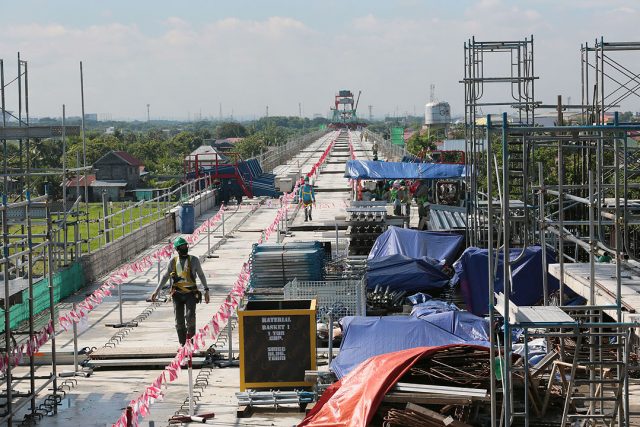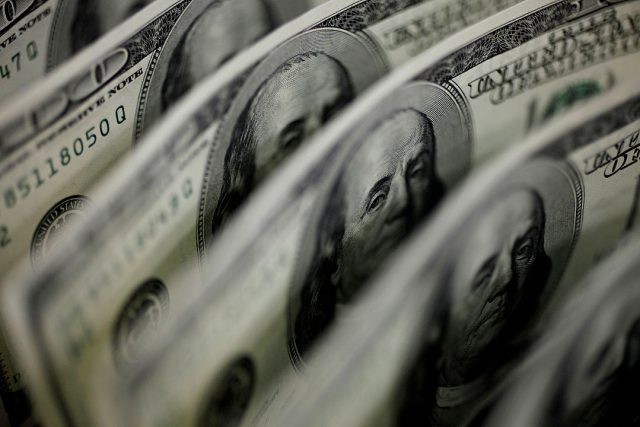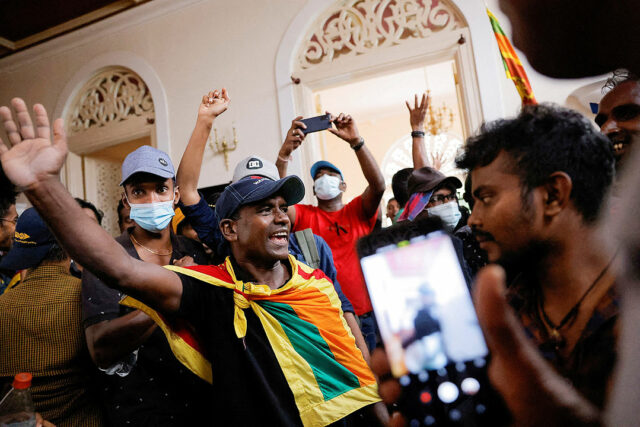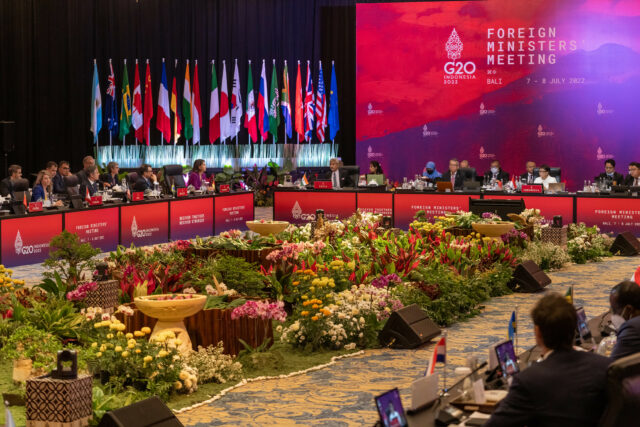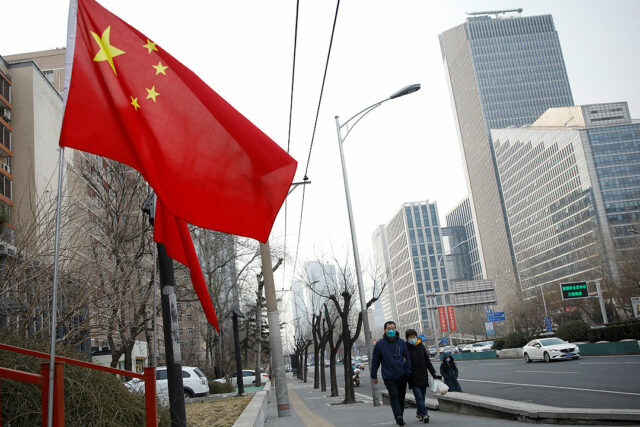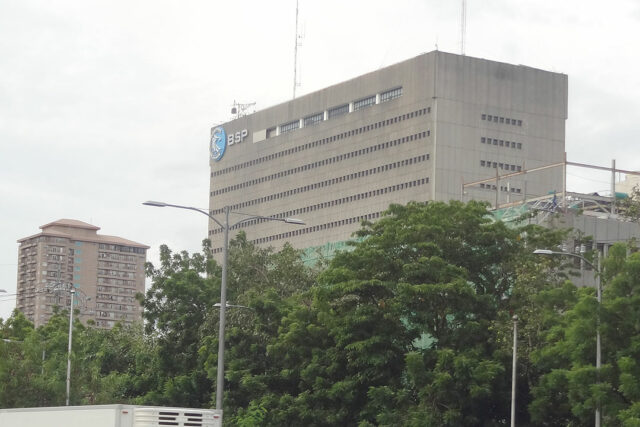WASHINGTON — April Fenall wants to electrify and upgrade her fleet of California delivery vehicles, but she thinks her business with a conscience is too small to interest her big bank.
“It’s almost like you can see them looking at your bank account and sizing you up,” Ms. Fenall, 50, told the Thomson Reuters Foundation, speaking of the bankers she has approached.
“I feel right away that I don’t fit the criteria.”
And amid the turmoil of recent years, she is not sure if she is interested in working with them, either.
“Small businesses like myself feel beaten up,” said Ms. Fenall, who runs Oakland-based Piikup in northern California.
“We don’t need another loan. We don’t need debt funding. Low-interest, friendly loans are what we need.”
So a new proposal in the area has caught her eye: a public bank, aimed at filling the gaps left by traditional financial institutions that some say often shun micro or minority businesses.
“Loans under $50,000 are just not interesting for community banks or local financial institutions … it isn’t worth their time and energy,” said Susan Harman, who sits on the board of the proposed Public Bank East Bay.
“That’s a huge gap in the market that we hope to fill in partnership with local financial institutions.”
Public banks — typically owned and run by a government entity, often in the public’s interest — are common in many countries, including in Germany, India, China and beyond.
Not so in the United States, which for decades had only one: the state-run Bank of North Dakota.
American Samoa created a second in 2018.
That picture is now changing — and at pace.
Last year, 18 public bank bills were introduced nationwide, according to the Public Banking Institute advocacy group.
“Money is a public utility, and banking should be a public utility, as well. Right now, it’s a private utility,” said Walt McRee, the Public Banking Institute’s chair emeritus.
“It’s about reclaiming control of our money.”
GLOBAL RENAISSANCE
Advocates say public banks ensure wealth stays local and meets neighborhood needs.
Their potential rise comes as the number of privately-held, small, local, US banks has dropped from nearly 14,500 in the 1980s to a scant 4,200 last year, according to federal data.
Public banks can also cut interest payments for local governments and unlock money for future investments, Mr. McRee said.
Globally, such banks have shown real stability in crises, including the pandemic, said Thomas Marois, a political economist at the University of London.
Whereas private banks “pull in their investments amid crisis,” he said, in the pandemic “public banks almost universally were increasing lending, directing it to health care, (small businesses), protecting jobs and more.”
Today there are more than 900 public banks globally, holding upwards of $49 trillion in assets, he said.
While their rise came particularly after World War II, there has been major new interest in recent years on the back of the 2008–2009 recession, along with a new priority on funding sustainable development and the upheaval caused by COVID-19.
“People suddenly realized that these are pretty fundamental elements in public stability and will be key to COVID recovery and future sustainability,” Mr. Marois said.
The United States is leading that “global renaissance,” he said, fired in part by a loud new clamor for racial justice.
A spokesman for the US Treasury declined to comment on whether it is tracking the rise in public bank proposals or its stance on the issue.
The American Bankers Association, though, has long warned about the perils of state ownership in the financial sector.
“History has shown that public banks create more problems than they solve and nearly always fail, usually because of political interference resulting in risky loans or operating with too little capital,” Blair Bernstein, an ABA spokesperson, said in an email.
“Starting a public bank, when there is no demonstrated need, would expose taxpayers to substantial risk and create an uneven playing field for private-sector financial institutions.”
A widely watched effort in Philadelphia to create a proto-public bank was rejected by the mayor last month.
Mayoral spokesperson Kevin Lessard said the city’s existing agencies were well able to help disadvantaged local businesses so there was no need to set up new ones with that aim in mind.
Yet change makers say the evidence points to the contrary.
“We have a 25% poverty rate in Philadelphia, and only 6% of businesses are owned by African Americans … despite 43% of the population being African American,” said Derek Green, a city councilor who spearheaded the effort.
“That says to me we have small businesses that are entrepreneurs but are not able to grow,” he said, citing challenges in accessing credit.
LEFT OUT AND LEFT BEHIND
Upending norms is similarly a key focus for a $200-million state-wide proposal in Massachusetts, where supporters hope to introduce a new bill in January.
Just 4% of business loans in the state go to women-owned businesses, said Ruth Caplan, co-chair of the Massachusetts Public Banking Campaign, while the pre-pandemic gap in access to capital by business owners of color was at least $574 million per year.
“We’re also concerned about farmers. They need low-cost capital to acquire farmland, and they can’t get the loans they need,” Ms. Caplan said.
The US vanguard state on the issue is California, which passed a law in 2019 to facilitate such projects.
In San Francisco, a push is on for a new public bank that would bolster local entrepreneurs in times of most need.
“We’re trying to figure out how to reinvest in our local economy in ways that can make sure small businesses don’t close in times of financial crisis,” said Jackie Fielder, co-founder of the San Francisco Public Bank coalition.
A business plan is underway, with an added focus on how best to finance the city’s climate goals and make housing affordable.
This last aim cuts deep for Reina Trello, who in 2018 was evicted with her two children and several relatives after trying to refinance their home following the 2008 recession.
“We had one of those horrible loans and fought off our eviction for seven years,” said Ms. Trello, 40, a community organizer in San Francisco.
A financial institution rooted in the community could act differently, she said.
“That’s the most important thing the public bank can do: to bring the decisions local. I can tell you what my neighborhood needs.” — Carey L. Biron /Thomson Reuters Foundation





